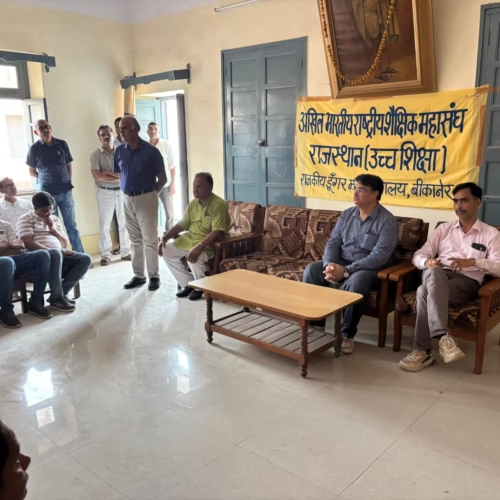Indian Student Ranjani Srinivasan Deported from the U.S. After Visa Cancellation Over Pro-Hamas Support, Rioting at Columbia University
Washington, D.C., March 15, 2025: The U.S. Department of Homeland Security (DHS) has released a video showing Indian student Ranjani Srinivasan departing the United States after being self-deported following the cancellation of her visa. Srinivasan, a student at Columbia University, was accused of advocating violence and terrorism, particularly through her support for Hamas and alleged role in violent riots on campus.
The video, released by DHS officials, shows Srinivasan at the airport, escorted by immigration authorities, as she boards a flight back to India. Officials confirmed that she was removed under strict immigration protocols after her visa was revoked on national security grounds.
Charges Against Srinivasan: Support for Hamas & Campus Riots
According to U.S. authorities, Srinivasan actively participated in pro-Hamas demonstrations that turned violent at Columbia University. She was allegedly involved in coordinating riots, advocating extremist ideologies, and inciting violence against certain communities.
A DHS official stated, “Foreign nationals in the U.S. on student visas are expected to comply with laws and uphold the values of peaceful expression. Engaging in violence and supporting designated terrorist organizations violates visa conditions and national security laws.”
Key Accusations Against Srinivasan:
- Openly expressing support for Hamas, which is designated as a Foreign Terrorist Organization (FTO) by the U.S. State Department.
- Participating in and inciting violent riots at Columbia University.
- Advocating anti-Semitic rhetoric and extremist propaganda on social media.
- Disrupting public order and engaging in activities considered a threat to U.S. national security.
Self-Deportation After Visa Revocation
After the U.S. Immigration and Customs Enforcement (ICE) and DHS revoked her student visa, Srinivasan was given the choice to appeal her removal or self-deport. Facing potential legal action and an extended ban from the U.S., she chose voluntary departure.
A DHS spokesperson confirmed, “Srinivasan’s departure was a result of due legal process. The U.S. remains committed to preventing individuals who advocate violence and terrorism from abusing the privileges of student visas.”
Reactions from U.S. and India
The deportation has sparked widespread reactions from various quarters.
- U.S. lawmakers and security officials welcomed the action, emphasizing the zero-tolerance policy for extremism and violence.
- Indian officials have not officially commented, but sources indicate that Srinivasan will be closely monitored upon her return.
- Columbia University has distanced itself from the incident, stating that “campus demonstrations must remain peaceful and lawful”.
Conclusion
Ranjani Srinivasan’s deportation sends a strong message about the consequences of supporting extremist ideologies and engaging in violent activities while on U.S. soil. The case highlights the strict enforcement of immigration laws, ensuring that individuals who pose potential security risks are not allowed to remain in the country.
With heightened scrutiny on foreign students involved in radical activities, authorities are expected to continue monitoring and taking swift action against individuals violating U.S. security laws.

















Add Comment